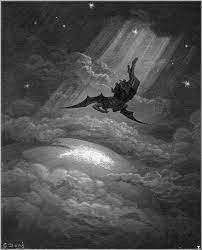“Paradise Lost,” the epic poem by John Milton, is a literary masterpiece that has captured the imaginations of readers for centuries. This epic tells the story of the fall of man, the rebellion of Lucifer, and the ultimate redemption of humankind. While many are familiar with the basic plot of “Paradise Lost,” there are several secrets and intriguing aspects of this work that are often overlooked. In this essay, we will explore the top 10 secrets about “Paradise Lost,” shedding light on some of the lesser-known facets of this iconic literary work.

1. Influence of Personal Struggles: John Milton’s personal struggles greatly influenced “Paradise Lost.” He wrote this epic poem during a tumultuous period in English history, and his own experiences with blindness and political turmoil are reflected in the themes of darkness, chaos, and rebellion that permeate the poem.
2. Unique Structure: “Paradise Lost” is written in blank verse, a form of poetry that lacks rhyme but maintains a strict meter. This unique structure allows for a sense of grandeur and seriousness, making it well-suited to the epic nature of the narrative.
3. Biblical References: Milton drew heavily from the Bible in crafting his epic. “Paradise Lost” is filled with allusions to biblical texts, and readers with a deep knowledge of Scripture will appreciate the layers of meaning within the poem.
4. The Character of Satan: Satan is one of the most complex and intriguing characters in “Paradise Lost.” Milton’s portrayal of Satan as a charismatic and cunning figure has led to countless debates about whether he is a sympathetic character or a symbol of pure evil.
5. The Role of Women: The female characters in “Paradise Lost” are often overshadowed by the male figures, but they play crucial roles in the narrative. Eve’s decision to eat the forbidden fruit and her subsequent role as a mother are themes that have sparked feminist interpretations of the poem.
6. Milton’s Political Views: “Paradise Lost” also reflects Milton’s political views. He was a staunch advocate for republicanism and individual liberty, and these themes are subtly woven into the narrative, especially in Satan’s rebellion against God’s authority.
7. Themes of Free Will: The poem grapples with the concept of free will and the consequences of human choices. It raises profound questions about the nature of human agency and the role of divine providence in the world.
8. Theological Debates: “Paradise Lost” has been the subject of intense theological debates. Its exploration of predestination, theodicy, and the nature of God’s justice has led to diverse interpretations among theologians and scholars.
9. The Poem’s Legacy: “Paradise Lost” has had a lasting impact on literature and popular culture. It has inspired countless works of art, literature, and music, and its themes continue to resonate with contemporary audiences.
10. Ongoing Relevance: Despite being written in the 17th century, “Paradise Lost” remains relevant today. Its exploration of themes like temptation, the abuse of power, and the consequences of human actions continue to resonate in a modern world grappling with similar issues.
Conclusion:
In conclusion, “Paradise Lost” is not merely a poem but a rich tapestry of literary, historical, and theological secrets waiting to be uncovered. John Milton’s personal struggles, the unique structure of the poem, the complex character of Satan, and the enduring relevance of its themes make “Paradise Lost” a work that continues to captivate and inspire readers. As we delve deeper into the secrets of this epic, we gain a greater appreciation for its timeless significance and its enduring place in the canon of world literature.
